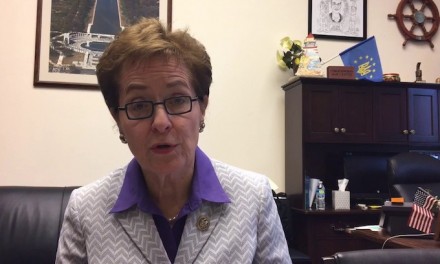D. Michael Lindsay, president of Gordon College, wrote recently in an article that he penned for The Gospel Coalition, “Every higher education institution has a [hidden curriculum]. It’s not the catchy slogan emblazoned on campus merchandise, and it’s not necessarily in an admissions counselor’s spiel.
“It’s the subtle lessons we learn about an institution through studying their campus programs, student activities, and the institutional funding allocated for programming beyond the classroom. You don’t need a PhD to discern an institution’s hidden curriculum. It only requires a curious mind, a discerning heart, and knowing where to look.”
Mr. Lindsay goes further: “One of the best ways to get a sense of an institution’s hidden curriculum is to spend time on a campus. Look around and study the place. What campus events are advertised? How do students treat one another and the faculty? What is reported in the campus newspaper? [These are all] good indicator[s] of an institution’s hidden curriculum If you want to grow in your faith at college, but the institution is hostile toward [Christianity], you might be heading to the wrong institution.”
Finally, Mr. Lindsay concludes, “[O]ur hearts [are] shaped by the people who surround us, by the mentors and exemplars we emulate, by the teachers who introduce us to new ideas and new possibilities. This is why one’s college choice is so important. Most of higher education is deeply committed to shaping young people motivating them about what to protest and what to promote.
“Most parents are oblivious to this, but it’s among the biggest factors that will shape the hearts and minds of young people who are deciding where they will go [to college]. After 18 years of careful parenting, you eventually need to turn your student over to an institution hoping they will come back whole. To send them away without understanding the hidden curriculum of an institution would be a shame.”
Mr. Lindsay is absolutely right. I, however, would argue that his critique is not just one of what we might call the secular academy, but also of the many colleges and universities that pretend to be Christian.
In more than 35 years of academic leadership within the Christian college community, I have found the “hidden curriculum” in the majority of schools is pervasive and, frankly, in many cases pernicious.
Parents who spend a premium — to the tune of tens of thousands of dollars — to have their sons and daughters educated within the context of what they are told is a biblical worldview, often find their kids are being indoctrinated in the newest fads of “social justice,” political correctness, sexual fluidity and gender studies, rather the time-tested truths of an orthodox apologetic.
Professors frequently disparage traditionalism while extolling what is popular and progressive. Sad as it is, the “hidden curriculum” at many Christian colleges is more focused on challenging your child’s orthodoxy than it is on giving him or her more confidence and courage in defining, “conserving” and defending it.
Take one prominent “Christian” university, as an example (one that is emblematic of dozens of others). Featured on the cover of a recent edition of its student newspaper is a call for a “conversation” on matters related to its “LGBTQ community” and issues of “faith.”
Just last week in an interview with the local media, this college’s vice president of enrollment and marketing was quoted as saying, “We seek to support all of our students and to provide an environment that can support higher learning We understand we are going to have some students who [disagree] and we think it’s healthy to have the debate and dialogue.”
The “hidden curriculum” for this college is clear: Homosexual behavior within the body of Christ is now something that should be “discussed” rather than forthrightly disputed, confessed and condemned. One might want to ask this vice president if he also believes it would be “healthy” to have “dialogue and debate” concerning other popular sexual agendas presently on the cultural horizon.
For example: Would he welcome a “discussion” about NAMBLA’s arguments to lower the age of consent for pederasty? Why not a “debate” about consensual incest like the one being led by a former professor of Columbia University?
How about embracing the ongoing “dialogue” regarding what some “Christian thought leaders” are calling the “blatant lie” found the Genesis narrative – the one where God says he created us as two distinct sexes (which are male and female, in case you’re confused)? I’m curious — for this open-minded and pedantic young Christian college leader, where will the conversation stop and conviction begin?
This spring and summer, as you are evaluating where you should send your children off to college, the “hidden curriculum” of that school is incredibly important. More often than not, it is the thing that sends a much clearer message than any glossy brochure as to what an institution’s true direction might be.
It, more than any marketing pitch, will tell you if your tens of thousands of dollars will be spent on an education in moral capitulation and compromise, or if you are actually paying money to have your son and daughter taught some courage, some confidence, and to have conviction.
The not-so-hidden-message in the “hidden curriculum” is clear: Choose education wisely. Your child’s soul, and that of our nation, lies in the balance.
• Everett Piper, president of Oklahoma Wesleyan University, is the author of “Not A Day Care: The Devastating Consequences of Abandoning Truth” (Regnery 2017).
© Copyright (c) 2018 News World Communications, Inc.
—-
This content is published through a licensing agreement with Acquire Media using its NewsEdge technology.


















Recent Comments